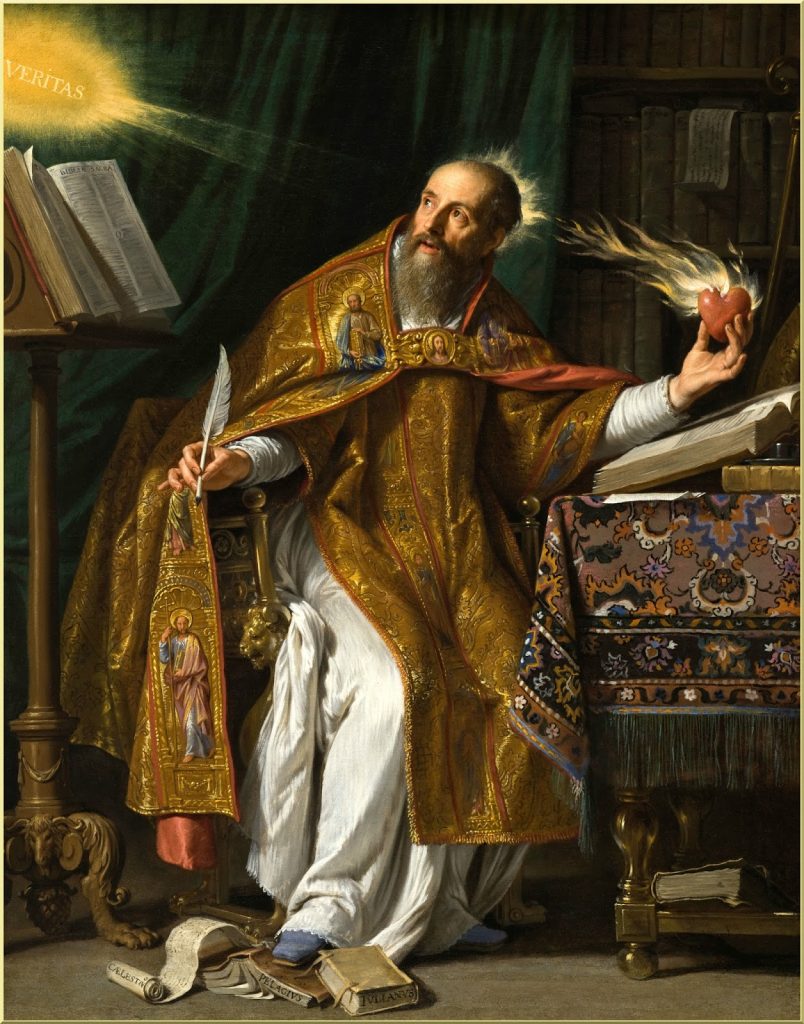ST AUGUSTINE OF HIPPO

St Augustine of Hippo (13 November 354 – 28 August 430), also known as St Augustine, was a writer, theologian, philosopher and bishop of the Roman Catholic Church. His writings had a great influence in shaping modern Christianity and Western philosophy. He is perhaps the most notable theologian after St Paul of Tarsus. To this day, his writings continue to be relevant in our contemporary life, spurning different orders and followership both in Catholic and Christianity entirely. Over the years, his works also served as an influence and inspiration for many other great theologians and philosophers. Among his notable works is ‘Confessions’ (where he talked about his conversion and ‘The city of God’, widely considered as his greatest work centering on theology, philosophy, the world, heaven and about God. The city of God, for centuries was the most dominant part of Christian deliberation.
Born in Thagaste, Numidia of the Roman Empire (now Souk Ahras, Algeria), to a devout Christian mother, Monica and Patricius, who only accepted Christianity on his death bed, he was originally given the Latin name Aurelius Augustinus Hipponensis. From 396 until his death in 430, he was the bishop of Hippo.
Around his early adulthood, Augustine was engrossed in a hedonistic life just to gain acceptance from his peers. At 17, he went to Carthage where he was schooled in rhetoric, and there he later taught. He was set to marry an heiress, but it didn’t happen as he had decided to become a priest.
Upon his conversion to Christianity, after much effort by his mother, he gave up his teaching profession to focus his time on his faith. In his book ‘Confessions’ he proposed that “the humans have a natural inclination to sin, and it takes the grace of Christ to overcome this sinful desire”.
He died in Hippo (now Annaba, Algeria) on 28 august 430, after much work on strengthening the Christian faith among lay faithful and his venerated on this day in the Catholic and orthodox churches and is also regarded as a doctor of the church. He also seen as patron of theologians, philosophers, printers and some other bodies. His books covered diverse topics such as theology, philosophy and sociology.
Some of his famous quotes on evangelization include:
- “faith is to believe what you do not see; the reward of this faith is what you believe”
- Patience is the companion of wisdom”
- “Thou hast created us for thy self, and our heart is not quiet until it rest in thee”
- “miracles are not contrary to nature, but only contrary to what we know about nature”